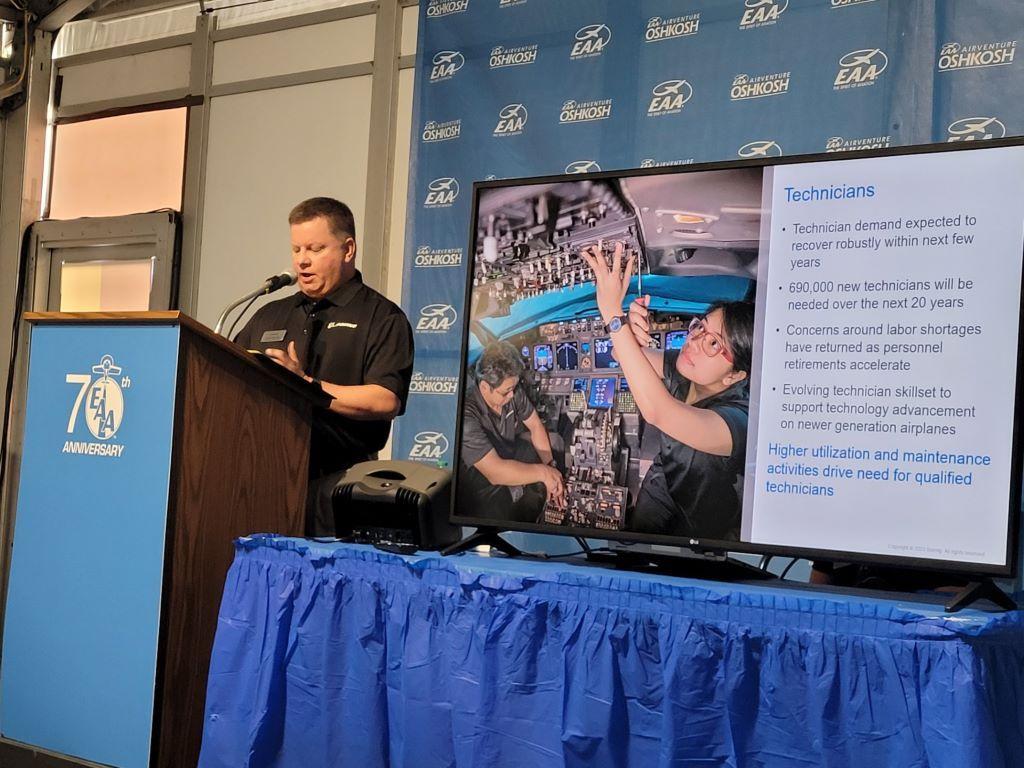
OSHKOSH—Boeing forecasts demand for 2.3 million new commercial pilots, technicians and cabin crew over the next 20 years, and that doesn’t count the need from the business aviation or the Advanced Air Mobility industries, the company said during a media conference at AirVenture 2023 in Oshkosh, Wisconsin.
The analysis predicts global demand for 649,000 pilots—or 32,300 pilots per year; 690,000 maintenance technicians, or 33,000 per year; and 938,000 cabin crew members, or 47,000 per year, Chris Broom, Boeing Global Services vice president of commercial training solutions, told members of the media.
In the next 10 years, more than 30% of U.S. aviation technicians will be at or near retirement, and more than 25% of commercial pilots in the workforce today will reach mandatory retirement age. At the same time, the fleets are growing. The military is also battling its own workforce shortages, Broom says.
“The challenge for North American airlines will continue to be inspiring, developing and training the next generation of pilots to fill the gap left by retirements and attrition,” he says.
Through 2042, the forecast projects a requirement in North America for 127,000 new pilots, 125,000 new technicians and 177,000 new cabin crew members. Demand in Eurasia and in China each top North American projections. The forecast projects Eurasia, which this year includes demand in Russia, will require 143,000 pilots, 156,000 technicians and 235,000 cabin crew members, while China will have a need for 134,000 pilots, 138,000 technicians and 161,000 cabin crew members.
Competition for talent has risen significantly and recent contract renewals for airline mechanics have resulted in double-digit wage increases, he says. Average pilot salaries at the regional airlines have doubled and wages with the major airlines have risen significantly.
Domestic air travel has fully recovered, and international traffic is near pre-pandemic levels, Broom says. Travel returned quicker than most people expected.
With the return, workforce demands continue to increase, he says, and the industry faces challenges with flight training capacity. Boeing is working to support its customers and the industry.
“Our competency-based training and assessment offerings will help ensure high-quality training for future and current aviation professionals and continue enhancing aviation safety through immersive and virtual training solutions,” Broom says.

